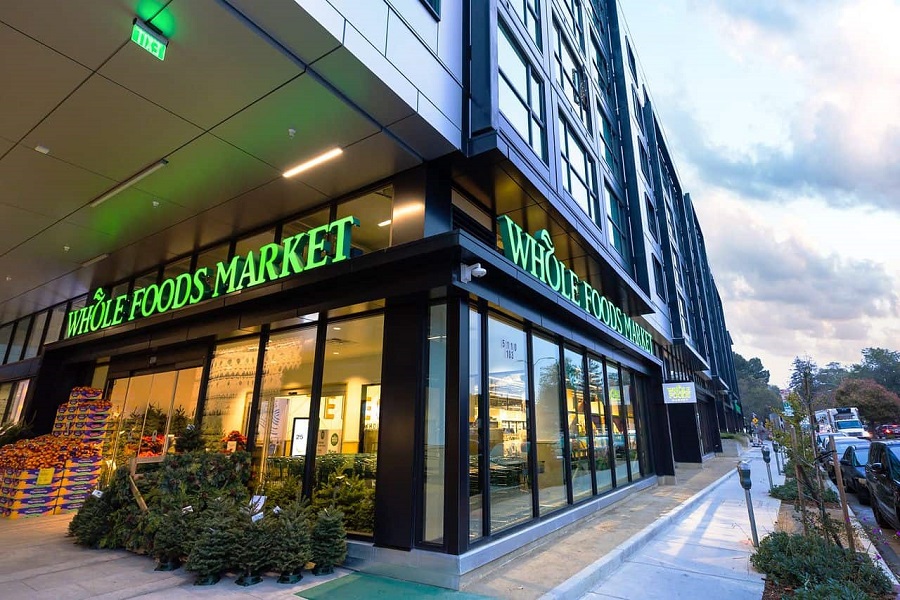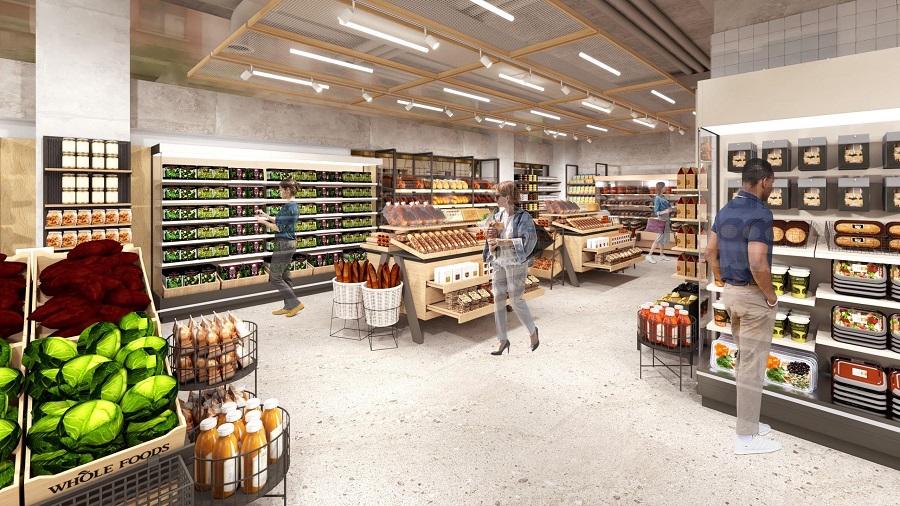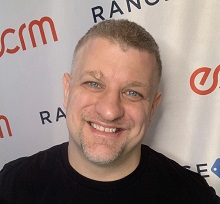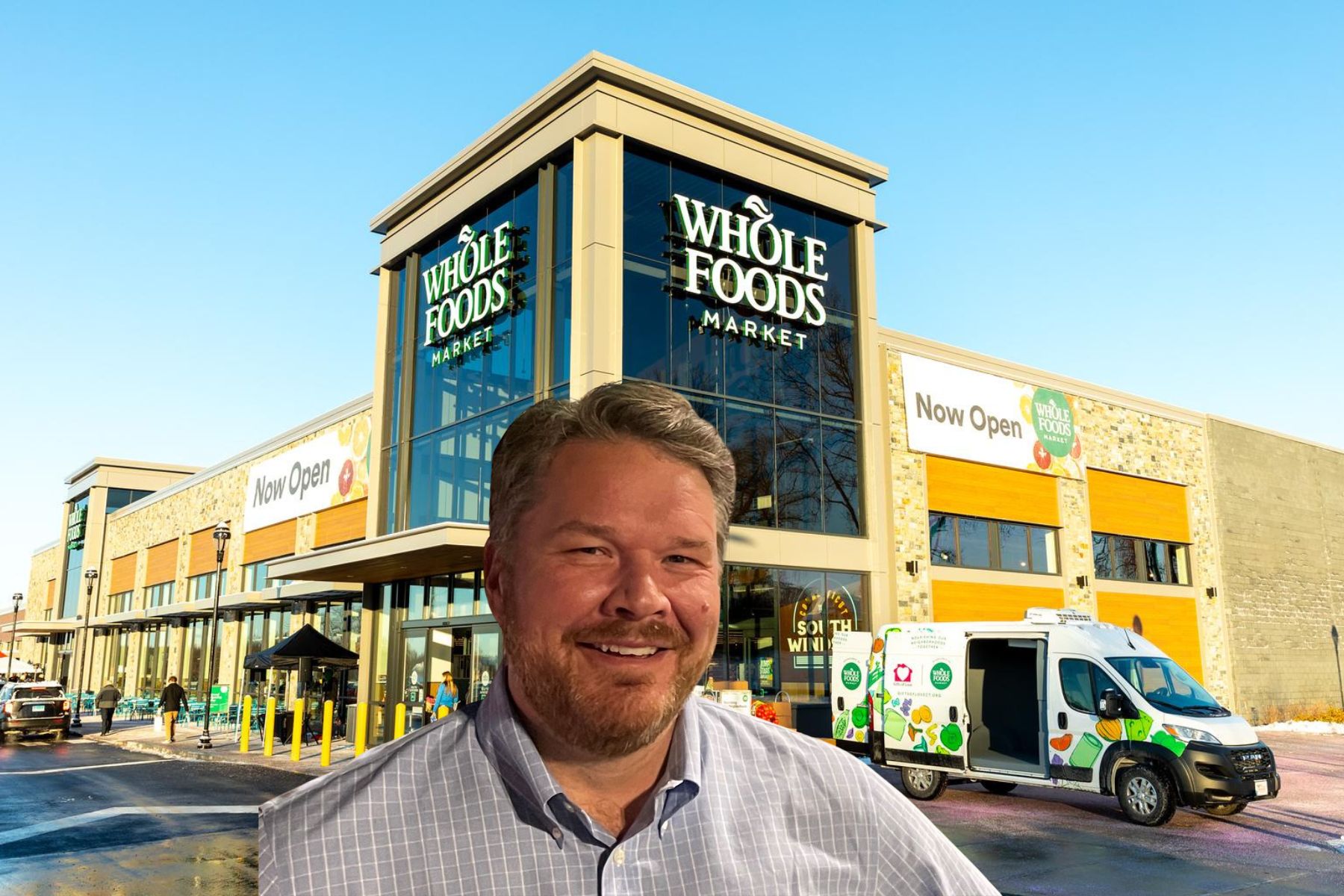Supplier Engagement & Co-Creation Drive Product Innovation at Whole Foods Market 3/20/2024
As Whole Foods Market VP of Sourcing & Product Development Tom Hermes notes, his team is like a CPG company embedded in a retailer. Their role is to work closely with suppliers (and always be on the lookout for new ones) to stay ahead of consumer trends when it comes to WFM’s store brand products.
This is not always easy. As a retailer that sources products globally, there are many challenges they have to face down regularly, whether geopolitical issues, supply chain bottlenecks or different regulatory hurdles, getting great products to market often requires the sourcing team to be well-versed on global happenings and extremely quick on their feet.
In this fireside chat, ECRM’s SVP of Retail Wayne Bennett chats with Hermes about how he and his team accomplish all of this to bring out 500 new products each year, and the importance of engaged supplier relationships in making this happen.
One side note, Whole Foods Market buyers will be at ECRM’s Private Label Food & Beverage Session next month, and as Hermes says, they are always on the lookout for new and innovative CPG brands they can bring into the fold.
The Sourcing & Product Development Team
Bennett: Tell us about what you do at Whole Foods and what your team does specifically in this area.
Hermes: My title, Sourcing and Product Development, is literally the name of my team. And the easiest way to describe it – as if I were telling people at a dinner party – is we're like a CPG company embedded within a retailer. You've got all the elements of what a CPG company does: R&D, product commercialization including print package design and that sort of thing.
Our core functionality is in our relationships with suppliers because everything we sell we're obtaining in the market through partnerships, and those partnerships are among the most valuable kind of assets of our team, which is built around supplier engagement. The structure we use is a center of excellence format.
Building Resilient Supplier Networks
Bennett: Given all of the supply chain disruptions that the pandemic created in the marketplace, what are you doing to build resilient supplier networks and ensure a fluid supply chain?
Hermes: Whether it be the pandemic or geopolitical issues that are going on in the world today, things like that put a strain on the network and that strain to me also illuminates where things are really strong and where they aren't. It's really easy to be a good partner when everything's good; the mark of a good partner is that when times are tough, how do you show up? I think the pressure our industry has been in over the past few years has done a lot for me and our team to help identify who are those really true ride-or-die partners that we can rely on, that are mission aligned, and are going to raise up and meet you in front when times are tough.
When you don't find that, then it's incumbent to try and do something different. There's absolutely opportunities for us to deepen the relationship bonds that we have with suppliers who may be more in the transactional camp today. In other cases you've got to go find more sources of supply just purely from a reactionary standpoint. Having the ability to source products from a broader range of available sources oftentimes is necessary for a variety of strategic reasons; risk mitigation certainly being one of them. Plus, it's hard to control factors like drought or other weather-based calamities. If you're overly exposed to a particular area in a particular crop, you could be in a really difficult spot.

The other factor that I think is very strategic is our focus on local. When you can buy closer to market, you both take cost out and improve your ability to serve with a faster reaction time. And so both those things draw significant benefits and the trade-off is economies of scale. So you want to try and hit that right balance of scale versus locality.
Bennett: Can you give us an example of a local-sourced relationship that has really gone beyond your expectation?
Hermes: There are certain categories that lend themselves to localized sourcing; typically those things that are really high volume, shorter shelf life, like milk, bread, eggs and water being the primary likely regionally sourced programs. We're a national retailer, and so we've got to create a tapestry of local supply bases and categories to cover the full group.
In that tapestry you really see how an individual supplier can influence the performance of their region based on how they show up to the partnership and then cultivate that and reward those players. There's also an opportunity – if we don't have the option of extending that supplier to a market that's really out of their geographic reach – where we can share best practices with our other partners.
Sustainability
Bennett: How do you make sustainability the center of what you do?
Hermes: Sustainability is fundamentally aligned with our value system and who we are as a retailer, so it's natural for us to show up strongly in this space, and I'm really proud of the work that we do in sustainable sourcing. We have a fundamental duty, I believe, to drive progress in this area. And when I say we, I don't mean just Whole Foods Market. I mean professionals in the food industry. The food system is one of the few places in our world where we can impact the wellness of people on our planet.
The evolution of our food system is so intrinsic to our ability to change the world for the better. I think we all have a role to play there for the future of our planet. And then you layer on top of that the fact that customers care about this topic, so you have to prioritize it for them. There's lots of examples of success here, but at the most basic principle, you have to think of it through the lens of product.
We make products and provide them for sale to our customers. And so when we're doing that, we have opportunities from really small micro shifts to really transformational changes available to us. Those choices are all there and we have to be intentional in service of where that roadmap is going to take us.
We have prioritized products that carry sustainability attributes, whether they are things like regenerative agriculture – which I think is such an important movement in food systems today – or even things like fair trade or other kinds of social wellbeing. Sustainability is a holistic concept. It's not just one thing of good for the planet, it's got to be good for people too.
Bennett: Can you share an example of a success that has come from close collaboration with a supplier partner?
Hermes: We've got about 3,500 items in our portfolio and we try to bring out 500 each year, so there are a lot to choose from. When I think about the products that we're bringing out right now, they absolutely represent co-creation with suppliers. One that I'm really excited about is a Whole Foods Market brand frozen cookie. It is one of the best quality cookies that you'll ever have. It comes out in April, and was really a concept that was nurtured in development with a supplier, including its formula development.
When it comes to product development, we are trying to not just follow what's happening in the market, but to look out three to five years and develop things that we believe are the right forward looking trends. And over the last couple of years since I've been here, we've let our suppliers into the room with us a lot more on co-creation.
Dealing With Risk & Uncertainty
Bennett: How do you navigate the regulatory uncertainties and geopolitical risk in the industry?
Hermes: Since we do source globally, that is definitely an important topic for us. Regulatory is complicated, especially when you consider all the different lenses of the differing regulating bodies and jurisdictions that you have to play across to do business in this industry. We were working with a supplier recently through a challenge in manufacturing, where some items were regulated by the FDA, and others are regulated by USDA. So even just within a single manufacturing plant on a line of items, different versions of flavors of the item are regulated by different governing bodies. So it’s very complex. And so we lean heavily on our suppliers. We ask our suppliers to be the experts on matters specific to the regulation of food production for their specific areas.
This is a big part of what we look for in a partner. We need somebody who's got skill and expertise in this area. We understand what we're up against, and want to make sure that we're delivering highly safe and very consistently high-quality products, but also that we conform with whatever the regulations require.
On the geopolitical side, in some ways it's as simple as just being plugged into the news cycle, but we try to put alert systems out there. One of our centers of excellence is our commodities team who is scouring the marketplace for information about things like weather patterns. Where do we have drought? Where are borders getting shut down? What impacts could that have if a port is closed down? Those sorts of things. This way we are providing early alerts to our team to help them improve their reaction time to acute issues that pop up. And we've also got a variety of partnerships in this space, third parties that can help flag issues of that type of nature.
WFM's Daily Shop Launch
Bennett: Tell us about Whole Foods Market’s Daily Shop concept stores that are launching soon.
Hermes: I'm incredibly excited about the opportunity for us to bring a new concept forward to our customers. Building a very robust physical store growth pipeline is something we've spent a lot of time on as a company. We've got a lot of new stores that we've opened even through and since the pandemic, and we've got a pipeline now of about 75 stores under development in varying states, and so much enthusiasm for our ability to expand our reach to a bigger customer audience.
And we're not just doing that through physical, we're doing that also through our e-commerce business. Last year we launched about 1,000 of our 365 items on a direct ship platform through Amazon that goes straight to customers; it doesn’t fulfill through store so it takes lead time out and breaks the geographic loop so that we can serve every single zip code in the United States instead of just those kind of directly surrounding a physical store footprint.
Daily Shop allows us the ability to serve an otherwise unmet need. The number one driver of store trip choice is convenience, and especially when you click into the urban landscape, there is the pressure of time, transportation and space constraints.

So those types of customers are prioritizing a different needs state, and we haven't been able to serve that need unless we happen to have a physical store footprint right nearby. And even when we do that store experience is not representative of what that customer's shopping trip actually looks like. So we can actually serve that customer shopping mission better by offering a smaller footprint. We can put those footprints in a more diverse set of locations that can get closer to customers.
Whole Foods Market & ECRM
Bennett: I know your team is engaged with ECRM throughout the year, and I'm just curious to get your perspective about that engagement and how your team benefits from it.
Hermes: I'll celebrate you and the team here by just saying you and the group have always been very easy to work with and very responsive to our needs and helping us identify additional sources of high quality suppliers in areas that we're trying to cultivate. New product creation is an incredibly important value creator for us.
I know through attendance at ECRM Sessions – and even ad hoc conversations with your team – helps us ensure that we are talking to all of the right people. There's nothing worse than coming away from a project and thinking, did we miss perhaps the best supplier in the process, because we kept it to just who we know. We love who we know, and we're also really excited to learn who we don't know. And so ECRM has been a really critical partner in helping us identify a broader group of high caliber suppliers who can meet our long-term needs.

